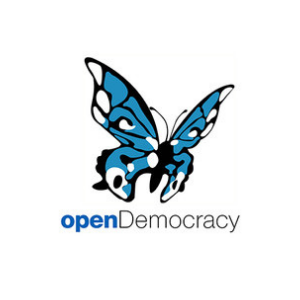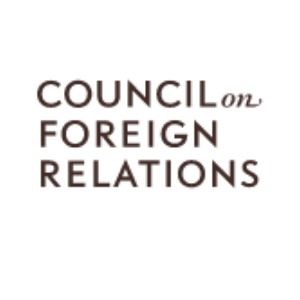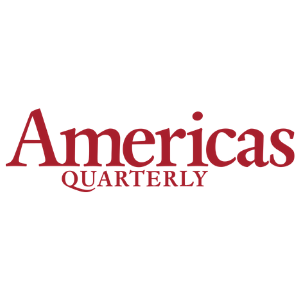
The Geography of Pandemic Effects
The COVID-19 pandemic is transforming virtually every aspect of our lives.

The COVID-19 pandemic is transforming virtually every aspect of our lives.

This article is part of a series in which leading experts reflect on emerging trends for cities seeking to address hate, polarisation and extremism.

Recent political developments in the United States are threatening internet freedom and cybersecurity across Latin America.

Ninguna ciudad se ha salvado de la propagación letal del COVID-19.

The world has learned much about the devastating impact of COVID-19 on human health and well-being. It is also waking up to the pandemic’s positive effects on the planet’s atmosphere, ecosystems, and biodiversity.

What remains of the global, open internet came under attack this month.

The U.S.-China dispute just took a dangerous turn. Late last week, the U.S. government issued three separate measures – two executive orders imposing sanctions on social-media networks WeChat and TikTok, and another to set up a “clean network” program – that, come mid-September, would prohibit any U.S. citizen or company from conducting business with those apps’ Chinese parent companies, Tencent and ByteDance respectively.

As explained in my new book with Ian Goldin – Terra Incognita: 100 Maps to Survive the Next 100 Years – maps can help make sense of the world around us.

The only surprise about Jair Bolsonaro’s diagnosis for COVID-19 was that it took him so long to test positive.

Across the United States, the debate over the future of policing is gathering steam.

The Covid-19 pandemic is disrupting globalization and temporarily disorienting the criminal underworld. Following the imposition of curfews and quarantines affecting more than two-thirds of the global population, many countries experienced a temporary lull in violent crime

Horrifying videos of police officers suffocating and shooting Black people in the United States have generated outrage around the world. The killings also triggered demonstrations in thousands of cities and towns in the United States and across the globe, temporarily displacing the COVID-19 pandemic from headlines

The COVID-19 pandemic has brought some of the world’s wealthiest global cities to their knees. In the current epicentre, New York, roughly one-fifth of all residents are infected and more than 20,000 have died.

The first wave of the COVID-19 pandemic may be receding in some parts of Western Europe, East Asia and North America, but it’s rapidly taking-off in Latin America, Africa and South Asia.

Published in Project Syndicate By Robert Muggah This year’s annual IMF/World Bank spring meetings may be taking place virtually, but the challenges facing the world’s finance ministers and central-bank governors are frighteningly real. In particular, will multilateral efforts succeed in preventing the coronavirus from causing

O mundo está em convulsão pelo novo coronavírus, mas esse não é o único patógeno que nos afeta. A violência criminal também é endêmica, contagiosa e altamente virulenta.

A Amazônia brasileira é há anos território perigoso para ativistas ambientais e jornalistas investigativos. Em vista da falta de ação do governo atual frente à violência crescente, expressa em levantamentos, é urgente a atuação da sociedade civil organizada.

I study violence in Latin America, and I’ve observed a sharp increase in reports of religiously motivated crimes in Rio de Janeiro since 2016, in particular attacks on “terreiros” – the temples of the Candomblé and Umbanda faiths.

After years of procrastination, Brazil has finally adopted comprehensive data protection legislation. In mid-2018, the government approved Law 13.709, known by its Portuguese acronym, LGPD.

They came looking for gold. Earlier this year, several dozen unauthorized prospectors, or garimpeiros as they are known in Portuguese, invaded a 1.4 million acre indigenous reserve in Brazil’s remote northern state of Amapá.

Violence has always been one of humanity’s most serious global challenges. Hundreds of millions of men, women, and children have been killed or maimed by armed conflict, crime, extremism, and sexual and gender-based violence. Not only does violence exact a massive social and economic toll, it depreciates human capital and undermines important civic and social institutions.

We are facing a climate emergency. More than 11,000 of the world’s scientists and successive reports issued by the International Governmental Panel on Climate Change say the evidence of human-induced global warming is irrefutable.

A violência não somente causa prejuízos sociais e econômicos maciços, mas também corrói as instituições democráticas e prejudica direitos humanos fundamentais.

Quer os políticos do Brasil acreditem ou não, o aquecimento global é um fato. Existe um perigo de que, enquanto os dados climáticos são questionados, as populações brasileiras sejam deixadas despreparadas para atenuar e se adaptar aos efeitos catastróficos que já estão em andamento.

The world is waking-up to the climate emergency. But our prolonged slumber is going to cost us dearly. The latest scientific findings indicate that our planet is approaching multiple “tipping points” that could cause irreversible and catastrophic changes in temperature, ecosystems and biodiversity.

Make no mistake: the world is in the early stages of a techno-war against city governments and urban infrastructure. And while some cities have bolstered their capabilities to patch their vulnerabilities, they are entirely unprepared for the scale of cyberthreats that are coming.

O mundo está acordando para a emergência climática. A crise das queimadas na Amazônia está trazendo à volta um debate antigo sobre o que significa a soberania nacional. E essa discussão deixa transparecer novas tensões que vão bem além da esfera doméstica.

O Brasil é a capital mundial de assassinatos. Nenhum país sequer chega perto. Por essa razão, foi extensamente noticiado quando o Ministro da Justiça anunciou que as taxas de homicídios caíram mais de 20% em 2019 em comparação com o mesmo período do ano passado.

Cities are stepping-up to confront many of the world’s biggest existential challenges – especially climate change. One reason is that cities have always been where the future happens first; spaces that cultivate creativity, resourcefulness and innovation.

Os impactos catastróficos do aquecimento global estão sendo extensivamente cobertos pela mídia. Do Ártico ao Brasil, o circo está pegando fogo.

The Igarapé Institute uses cookies and other similar technologies to improve your experience, in accordance with our Privacy Policy and our Terms of Use, and by continuing to browse, you agree to these conditions.

O Instituto Igarapé utiliza cookies e outras tecnologias semelhantes para melhorar a sua experiência, de acordo com a nossa Política de Privacidade e nossos Termos de Uso e, ao continuar navegando, você concorda com essas condições.

